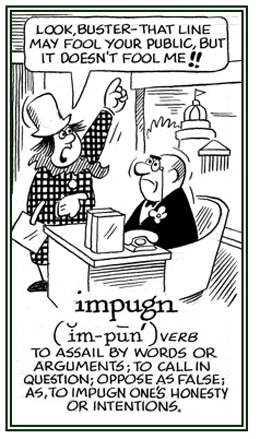dementia pugilistica
(s) (noun), dementia pugilisticas
(pl)
1. Chronic traumatic encephalopathy (any degenerative disease of the brain): A dementia pugilistica is a syndrome resulting from cumulative head blows absorbed in the boxing ring, which is characterized by general slowing of mental function, occasional bouts of confusion, and scattered memory loss. It may progress to the more serious boxer's dementia.
2. Dementia resulting from cumulative damage sustained over some years in boxing, resulting in slowed thinking, memory loss, dysarthria (speech that is characteristically slurred, slow, and difficult to produce, and therefore difficult to understand), and other movement disorders: Dementia pugilistica, also called chronic traumatic encephalopathy, pugilistic Parkinson's syndrome, boxer's dementia, and punch-drunk syndrome, is a neurological disorder which affects some career boxers and others who receive multiple blows to the head.
3. A condition seen in boxers (and alcoholics), caused by repeated cerebral concussions and characterized by weakness in the lower limbs, unsteadiness of gait, slowness of muscular movements, hand tremors, hesitancy of speech, and mental dullness: The condition of dementia pugilistica develops over a period of years, with the average time of onset being about sixteen years after the start of a career in boxing.
expugn
(verb), expugns; expugned; expugning
To take by force; to storm; to overcome or to conquer: The police were making efforts to expugn the city of criminals.
impugn
(verb), impugns; impugned; impugning
1. To suggest that someone or something cannot be trusted, relied on, or respected: Mrs. Thompson
impugned Jeffrey's character when she said that he could not be trusted to take the money to the bank because he was known to have stolen cash from his peers before.
2. To attack as false, questionable, or wrong: Jack's mother
impugned his comments that he was being mistreated because he was not being allowed to have a cell phone any more, when actually he had been using it too often and not doing any of the normal things which he should have been accomplishing.
 © ALL rights are reserved.
© ALL rights are reserved.
Go to this Word A Day Revisited Index
so you can see more of Mickey Bach's cartoons.
impugnable
(adjective), more impugnable, most impugnable
Suitable to being discredited, questioned , or open to verbal arguments: The man's motives for taking his wife's car without asking her or giving any reasons for his action was impugnable, also because he didn't even bring it back at all!
impugner
1. Someone who opposes or contradicts.
2. Someone who assails or attacks by words or with arguments.
impugnment
1. The act of challenging something, or someone, as being false; such as, another's statements, motives, etc.
2. The process of casting doubts about.
Nihil tam munitum quod non expugnari pecunia possit.
(Latin saying)
Translation: "No place is so strongly fortified that money could not capture it."
Another way of saying, "Money can buy anything or anyone." In addition, it could mean, "With enough money, one can have everything he/she wants; except good health and eternal life."
From Marcus Tullius Cicero (106 - 43 B.C.). Cicero's voluminous writings include poetry (both his own and translations from the Greek); orations (fifty-eight have survived, forty-eight are lost); compositions about rhetoric, philosophy, morals, and politics; as well as letters. His formal discourses are important historically because they contain much information on ancient thoughts. His letters are the primary source for our knowledge of the period.
After Caesar's murder, Cicero violently attacked Mark Antony in his celebrated Philippics. When the second triumvirate was formed, he was put on the list of those who were to be killed and was murdered by Antony's agents.
oppugn
1. To question the validity or truthfulness of something.
2. To oppose, to contradict, or to call into question.
3. To assail by criticism, argument, or action.
oppugnancy
Opposition; resistance.
oppugnant
1. Tending to awaken hostility; hostile; opposing; warring; combative.
2. Active in opposing, being antagonistic, and contrary.
oppugner
1. Someone who opposes or attacks.
2. Anything which opposes.
3. Someone who calls anyone or anything into question.
pugil
1. As much as is taken up between the thumb and two first fingers.
2. Etymology: from Latin pugillus, pugillum, "a handful"; akin to pugnus, "fist".
pugilant
(adjective), more pugilant, most pugilant
Characterized by boxing or fighting and used mostly figuratively: Steven seemed to be in a pugilant mood, being belligerent and very aggressive.
pugilism
(s) (noun), pugilisms
(pl)
Involvement in the sport of fighting with the fists: Arthur's father was active in the profession of pugilism, but Arthur certainly didn't like this sport at all because it was so aggressive and caused injuries.
pugilist
(s) (noun), pugilists
(pl)
1. Someone who practices the art of boxing: Lance was a professional fighter, or a pugilist, and studied his opponent carefully first before the first round started.
2. A boxer, a fighter, used in a figurative sense: A pugilist can be a vigorous controversialist, or a person who likes to disagree with other people and say things that make them angry.


